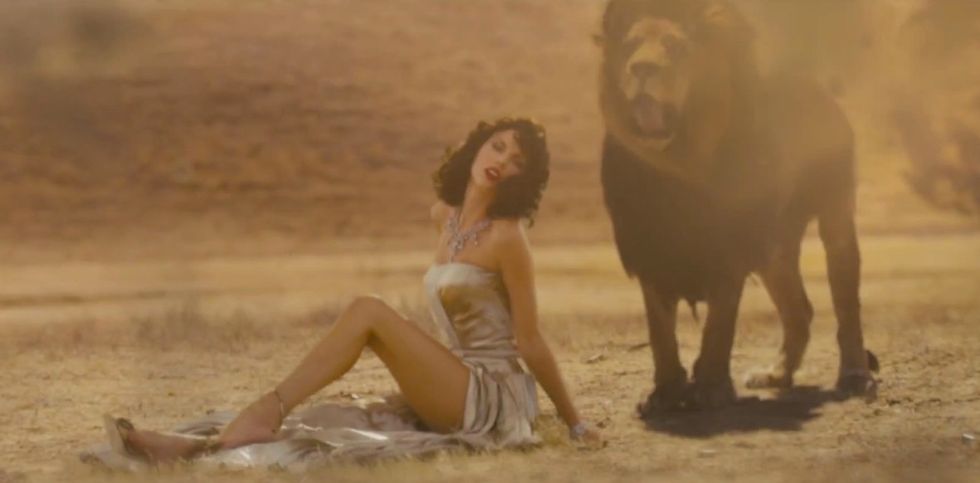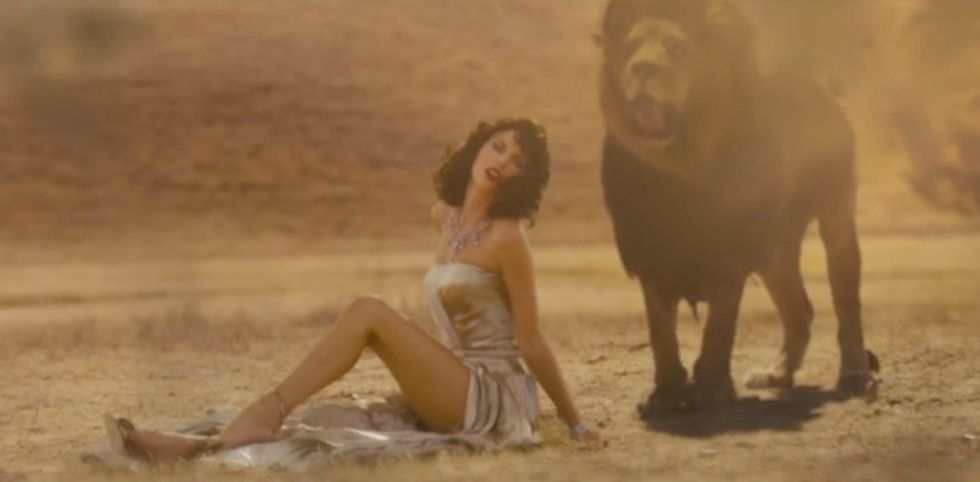An African Artist Thanks Taylor Swift For Her 'Wildest Dreams'
Zambian rapper B Flow writes a thank you letter to Taylor Swift for her "Wildest Dreams" music video.

Dear Taylor,
I write to thank you for your new video for "Wildest Dreams."
The first time I saw it, I thought of my late grandma, and how she would have reacted to it. Like me, I think she would have loved it, because she was proudly African. I love that you showed how beautiful our continent is, and that you recognized that we have the kind of landscapes that you can't find anywhere else in the world. As a Zambian, I was so proud to see my neighbors, Botswana and South Africa, in a Taylor Swift video.
Grandma would have probably used your video to remind me why I should continue shooting my videos here. A lot of us artists in Zambia and elsewhere on the continent have had this belief that shooting our videos in the same locations as Beyoncé and Jay Z is a symbol of success, and so we aspire to shoot our videos oversees. I'm a culprit myself, having shot my last video in Oslo. I can imagine Granny saying, "You see? Internationally acclaimed artist Taylor Swift has just showed you that shooting a video in Africa is success too. Appreciate what you have, Brian."
Before I proceed, I should clarify that I can understand why some people are seeing your video as glorifying colonialism. After all, the characters in your video do not appear so different from Cecil Rhodes and his British South Africa Company (BASCo) counterparts, the colonial masters who scrambled for our minerals and land and ruled my country until 1964.
I think Grandma Matilda would have found it surprising that there are no black people in a video that wishes to portray the Africa of the 1950s. But perhaps if your video did include black people, the criticisms surrounding it would have been far greater. I say so because at that time, black people in South Africa and Botswana were facing inequalities similar to those faced in my country. Perhaps your reason for not including black people was to avoid bringing attention to the brutal past of colonialism -- the forced segregation, the servitude, the economic and social exclusion, the beatings, and, sometimes, the disappearances of black Africans altogether. My grandmother, if she were to have been portrayed in your video, would at best have had to play the role of a servant. Of course, we all have the right to choose who we include in our videos, but we must also consider the impact of leaving out some pieces.
May I suggest that what might have been a clever thing to do is to include blacks, and portray us as the masters, so as to position yourself as an ambassador of anti-racism?
That having been said, here is why I'm thanking you for your video. In Zambia, we love to show the world the kind of sights you exhibit in your video. It is important for us to do so because these sights define our tourism, which is one of our most promising sectors for economic growth. If your video was mine, I think the Zambia National Tourism Board (ZNTB) would have endorsed me as their brand ambassador immediately. I could even see your opening lyrics, "drive out of the city, away from the crowds," becoming our next tourism slogan. But while I appreciate that you show the safari side of Africa, I also feel that you are missing out on a whole other side.
For a long time, international media has portrayed our continent as a place stricken by poverty or famine, or as a playground for animals -- like the ones in your video. I will take your video as a wake-up call. It's my job to show the side of Africa that is missing in your video. Instead of flying oversees to shoot my next video, what I should do is take up the responsibility of showing that we too have cities with streetlights, skyscrapers and shopping malls, like my favorite chilling spot, Eastpark Mall in Lusaka, and that some Africans too have swimming pools in their backyards, and arenas like Johannesburg's Ellis Park Arena, where the first ever NBA game on the continent recently took place. The other things that you didn't show in your video -- how extraordinarily cool the different scenes are across the continent, how we often party harder than anywhere in the U.S. (at least in Zambia, where we say, "party till we drop," and that is past dawn!), with some of the most innovative beats, like Zambia's own Zed Beats, and the new dances the kids are always coming up with.
I understand that you may not have experienced these things firsthand. While I don’t want to pretend that many countries in Africa don't have serious economic problems, poor infrastructure, and woefully inadequate health services, as the media often portrays, I will be quick to mention that we have at times recorded tremendous progress in dealing with these challenges. In addition, plenty of so-called developed countries also struggle under these very same burdens. It's therefore my duty to celebrate the multi-fascetedness of our continent that is missing in your video, so that the fullness of Africa is brought to light. Perhaps the world will finally see the side of Africa that has not been internationally promoted. No one will show the fullness of Africa if I don't do it myself.
Thank you for reminding me to continue being an ambassador for my country and my continent so that I can bring out the fuller picture.
If you want to help me promote African tourism, you are welcome to collaborate with me and we can shoot a cool video together, in Zambia this time.
Yours Sincerely,
B Flow
Brian Bwembya, otherwise known as B Flow, is a Zambian musician, gender rights and HIV/AIDS activist, founder of the music for change initiative and a fellow in President Obama's Young African Leaders Initiative/Mandela Washington Fellowship. Follow him on Twitter @bflowmusic.


